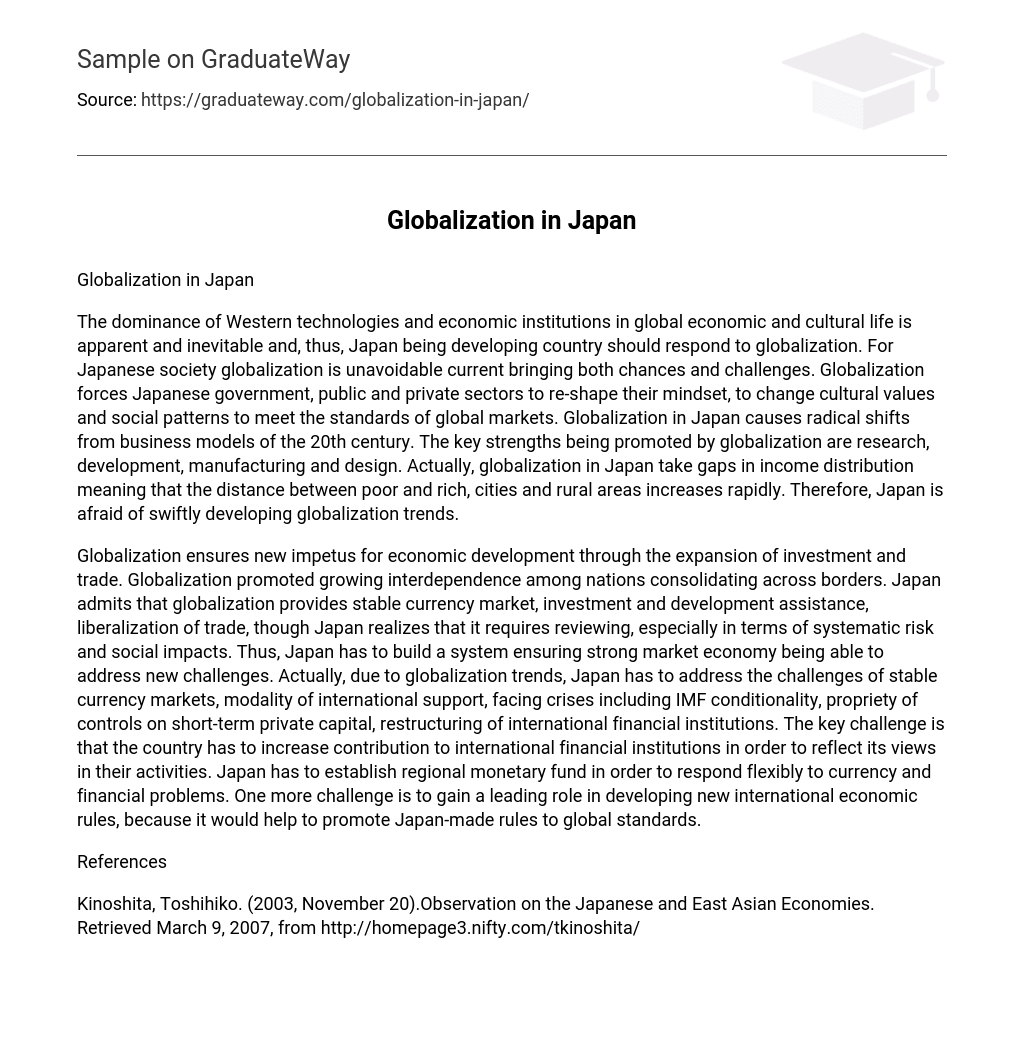The dominance of Western technologies and economic institutions in global economic and cultural life is apparent and inevitable and, thus, Japan being developing country should respond to globalization. For Japanese society globalization is unavoidable current bringing both chances and challenges. Globalization forces Japanese government, public and private sectors to re-shape their mindset, to change cultural values and social patterns to meet the standards of global markets. Globalization in Japan causes radical shifts from business models of the 20th century. The key strengths being promoted by globalization are research, development, manufacturing and design. Actually, globalization in Japan take gaps in income distribution meaning that the distance between poor and rich, cities and rural areas increases rapidly. Therefore, Japan is afraid of swiftly developing globalization trends.
Globalization ensures new impetus for economic development through the expansion of investment and trade. Globalization promoted growing interdependence among nations consolidating across borders. Japan admits that globalization provides stable currency market, investment and development assistance, liberalization of trade, though Japan realizes that it requires reviewing, especially in terms of systematic risk and social impacts. Thus, Japan has to build a system ensuring strong market economy being able to address new challenges. Actually, due to globalization trends, Japan has to address the challenges of stable currency markets, modality of international support, facing crises including IMF conditionality, propriety of controls on short-term private capital, restructuring of international financial institutions. The key challenge is that the country has to increase contribution to international financial institutions in order to reflect its views in their activities. Japan has to establish regional monetary fund in order to respond flexibly to currency and financial problems. One more challenge is to gain a leading role in developing new international economic rules, because it would help to promote Japan-made rules to global standards.
References
Kinoshita, Toshihiko. (2003, November 20).Observation on the Japanese and East Asian Economies. Retrieved March 9, 2007, from http://homepage3.nifty.com/tkinoshita/





